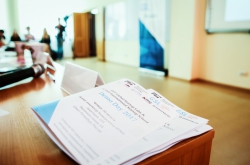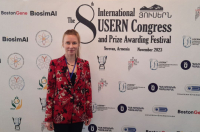Bolashak is an international academic scholarship established in Kazakhstan in 1993. Its recipients can study abroad and take research and industrial internships at the world’s top companies and universities. According to the Ministry of Education and Science of Kazakhstan, the program involves more than 200 universities from 27 countries. It was recently joined by Russia’s leading technical universities, including National Research Nuclear University MEPhI, Bauman Moscow State Technical University, and the Moscow Institute of Physics and Technology. Now, ITMO, too, has become a participant of the program.
The agreement between ITMO and the Center for International Programs covers several focus areas for collaboration in the field of education. First of all, students from Kazakhstan will now be able to study and do internships at ITMO as part of the Bolashak scholarship program. In addition, the parties have agreed to develop joint programs aimed at the exchange of experience between teaching staff.
ITMO currently has two joint educational programs implemented with the Al-Farabi Kazakh National University (ranked among the top universities in Central Asia by QS). The two universities also conduct student exchange programs. But, as ITMO’s First Vice Rector Daria Kozlova emphasizes, this new agreement will give the university an opportunity to vastly expand its educational and research relations with Kazakhstan’s universities.
“The memorandum of understanding that we have signed with the Center for International Programs provides a lot of new avenues to explore. First of all, we can now work with a great number of new motivated students, researchers, and teachers from Kazakhstan; secondly, this will lead to the strengthening of our scientific connections and build potential for new joint programs and projects. We see great prospects for partnership in various fields, from joint educational programs and academic exchange to scientific research. The school curricula for mathematics and computer science in Kazakhstan are similar to those used in Russia, which also creates a good foundation for collaboration,” comments Daria Kozlova.




